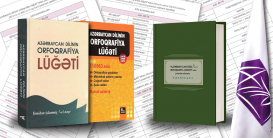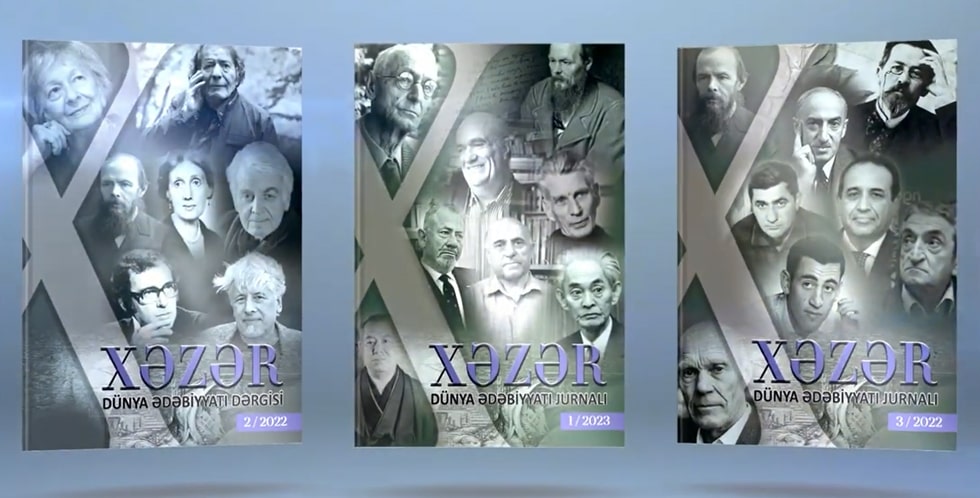Heydar Aliyev about the significance of the translation field

The Azerbaijan State Translation Center (AzSTC) was founded under Decree No. 169 of the President of the Azerbaijan Republic, Ilham Aliyev, dated May 23, 2014.
The idea of establishing a state-run facility to centralize translation work and promote world literature at the local level and Azerbaijani literature at the international level was pioneered by National Leader Heydar Aliyev at the Seventh Writers’ Congress of Azerbaijan already in 1981.
The importance with which Heydar Aliyev viewed the translation field, and his bright ideas to prioritize this field in terms of the spiritual and awareness-raising conditions set in the country, as well as to encourage regular exchanges between peoples, languages and literatures are still relevant today.
Below is an extract from Heydar Aliyev’s speech at the Seventh Republic Writers’ Congress:
A translation from one language into another is increasingly playing a vital role in the multifaceted processes of ensuring the flourishing and rapprochement of sister literatures. It represents the most powerful means of mutually studying and enriching national cultures of great social and political significance. It should be noted that much work has been done in this regard. Works of fiction by Pushkin, Tolstoy, Lermontov, Chekhov, Gorky, Mayakovsky, Tvardovsky, Sholokhov, Markov, Kojevinkov, Fadeyev, Polevoy, Chakovsky and Tikhonov and many other Russian writers have been translated into Azerbaijani, with many examples of works from fraternal peoples of our country already published in our republic.
However, there are still quite a few unresolved problems in this field. Here I draw attention first to elements in spontaneous flood. The publishing houses lack well-thought-out plans for the publication of masterpieces of world and Russian classics, as well as of Soviet literature in Azerbaijani. We still fail to have a long-term action plan to translate classical and modern Azerbaijani literature into Russian. We continue to experience the scarcity of highly qualified translators, and that way nobody has seriously attempted to train professional translators and organize the constant improvement of this field. This work is incomplete.
The quality of literary translation, a type of translation where the source documents are fiction, continues to be a major challenge. However, the requirements of social and moral development in our republic and a further rise in Azerbaijan’s socialist culture are in need of radical improvement of all socio-political and literary translations. Apparently, colleagues working in the Writers’ Union and Azerneshr (the major publishing house in Soviet Azerbaijan) must seriously consider the specific organizational forms of overseeing the work of translators.
The Ministry of Higher and Secondary Special Education and Azerbaijan State University should ensure that journalism students major in various fields of translation and upgrade their abilities. A wide range of creative workers should be involved in addressing the issue. I want to quote Samad Vurgun who had devoted the most beautiful years of his life to the translation of Alexander Pushkin's genius Eugene Onegin, saying that 'I wanted to achieve for Azerbaijani readers’ closeness to Pushkin's spirit and his characters: they foster love and respect for Tatyana so very much, almost as much as they do for Leyli.'
Our veteran writers should be honored to fulfil the great and noble mission of dealing with creative translation. The task is to improve the traditions of the Soviet translation school by strengthening creative contacts with Russian translation specialists, translators from across all fraternal republics, and those involved in progressive foreign literature translations with a view to revolutionizing life on our planet and contributing to common struggle for peace and social progress. To this end, it is necessary to improve translation facilities by regularly publishing related literature.
The Communist Party of Azerbaijan Central Committee attaches great importance to the issue, and takes appropriate measures to expound on the state of translation work and substantially improve it at the republican level.
The Russian language has played a crucial role in strengthening the creative connections between the peoples in our country, contributing to their mutual influence and enrichment. Works of great literary figures have been published, made widely available throughout the country and beyond, and gained popularity thanks to the Russian language.
Today, we are deeply grateful for the great services of Russian writers in the field of literary translation of Azerbaijani literature into Russian. It is necessary to promote and foster this creative friendship, these beautiful traditions. In this regard, the most important task of our writers is to study Russian fluently. The point is that the writers of our republic can use the Russian language, the Russian and all the Soviet literature more abundantly when creating their works in the mother tongue.
It is always useful to ensure interaction between the various languages, especially for literati. These relations also open up great creative opportunities for translating samples of our national literature into Russian. An author or writer who knows Azerbaijani and Russian fluently can make a great contribution. Such writers have to be helped by every means at our disposal. We believe that it will be fruitful and result in great artistic accomplishments.
Language is a great treasure for the people. The development of spiritual culture would be impossible without promoting literary language.
June 12, 1981
AND OTHER...
-
 Isi Malikzade’s Creativity on German Literature Magazine
Isi Malikzade’s Creativity on German Literature Magazine
LESERING.de, a popular German e-literature magazine, has posted in German the short story Salt by Isi Malikzade, the notable Azerbaijani writer, as part of the AzSTC project “Azerbaijan Literature in an International Virtual World”.
-
 Movlud Movlud’s Short Story on Turkish Portals
Movlud Movlud’s Short Story on Turkish Portals
“Detayhaberler.com”, “Dibace.net” and “Haber.232.com”, leading Turkish portals, have posted in Turkish the short story “We Have Already Grown Up” by the...
-
 The Book “The Classification of Words Extracted from “The Spelling Dictionary of the Azerbaijani Language” Out
The Book “The Classification of Words Extracted from “The Spelling Dictionary of the Azerbaijani Language” Out
The Azerbaijan State Translation Centre has published a voluminous book “The Classification of Words Extracted from “The Spelling Dictionary of the Azerbaijani Language”









